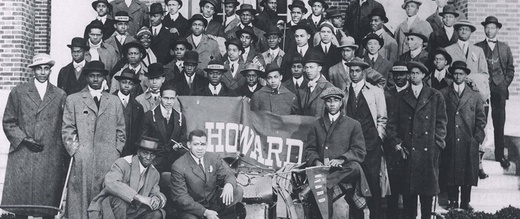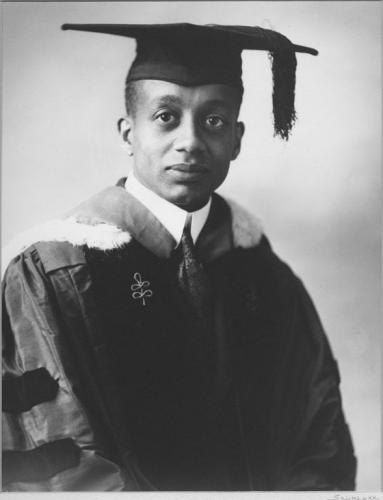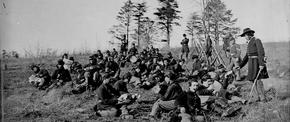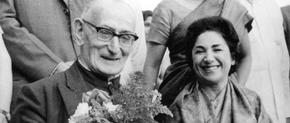The views expressed in our content reflect individual perspectives and do not represent the authoritative views of the Baha'i Faith.
… why should man find cause for discord in the color or race of his fellow creature? No educated or illumined mind will allow that this differentiation and discord should exist or that there is any ground for it. Therefore, the whites should be just and kind to the blacks, who in turn should reflect an equal measure of appreciation and gratitude. Then will the world become as one great garden of flowering humanity, variegated and multicolored, rivaling each other only in the virtues and graces which are spiritual. – Abdu’l-Baha, The Promulgation of Universal Peace, p. 112.
The commencement season has arrived, when millions of graduating youth, their proud parents looking on, will walk in the solemn and celebratory processions that mark their academic achievements.
I’d recommend that African American graduates thank not only their parents and their professors, but that they also remember and give their gratitude to Alain Locke, one of the first Black Harvard graduates, the very first Black Rhodes Scholar (1907), the Dean of the Harlem Renaissance and the pioneer and model for many an educated African American—America’s “Black Plato.”
In the course of researching my book on Alain Locke, I came across some previously unpublished essays and speeches, a few of which I co-edited and published in a Baha’i journal, World Order. One of these personal “discoveries” was a remarkable commencement speech given on August 18, 1944 to college graduates at a historically Black college, which, at that time, was called the Hampton Institute (now Hampton University). Here’s one excerpt:
Eventually, however, just as world-mindedness must dominate and remould nation-mindedness, so we must transform eventually race-mindedness into human-mindedness.
“Wow!” I thought, when I first read this statement. “This guy’s a heavy dude, for sure” (even though Locke was physically small in stature). Here’s another extract:
Today it is possible and necessary for Negroes to conceive their special disabilities as flaws in the general democratic structure. The intelligent and effective righting of our racial wrongs and handicaps involves pleading and righting the cause of any and all oppressed minorities. In making common cause with such broader issues, we shall find that we strengthen, both morally and practically, our own. Indeed, we must learn and use this new strategy and further regard such new motivations as a contribution we have it in our power to make to the general welfare and social democracy at large.
Alain Locke often gets the credit for internationalizing the issue of racial prejudice as a worldwide social and economic problem. Here, “Black Plato” advises Black graduates to find “common cause” with other oppressed minorities—a strategy that would benefit all concerned. Locke then gives quite an interesting example of how he himself had considered doing this in connection with the NAACP:
Only by broadening our social minds in this respect can we hope to become an integral part of the progressive movements of the world at large working for political, economic and cultural democracy. I can best illustrate what this means perhaps by repeating a suggestion I made some time ago that I thought the time had come for an organization like the National Association for the Advancement of Colored People, vital and useful as it had been as a militant Negro defense organization, to shift its emphasis, and in an inspiring renewal of insight into what the movement really meant, to change its name to the National Association for the Advancement of American Democracy. …
“Black Plato” ends his short commencement address to Black graduates with the following advice:
Indeed in the intellectual and cultural field there is already a trend,—and a healthy one,[—] to replace the “racial” concept with a sounder and broader term;—intercultural. This includes all minority problems and situations, the religious and cultural as well as the strictly racial; and it will be the basis in the near future of most of the efforts of progressive educators to teach understanding, tolerance and cultural democracy between all groups in our national and world society. We need, to repeat, a broad social mindedness which will link our racial cause to the progressive trends and movements of our time, that will offset on the one hand the damage of “ghetto-mindedness[”] and on the other, the other pitfalls of counter-racialism.
This advice back then still holds true today. Although Locke doesn’t mention the word “Baha’i”, his message certainly captures and conveys the essence of the Baha’i perspective on furthering ideal race relations today.


















Comments
Sign in or create an account
Continue with Facebookor